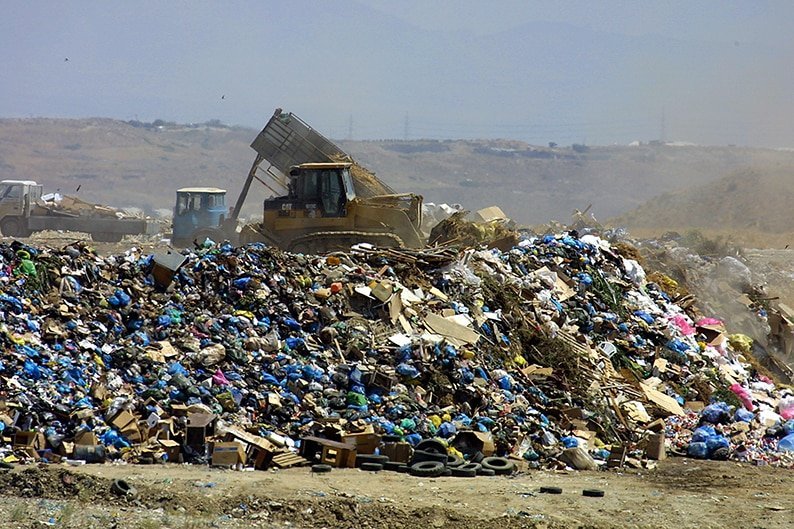Cyprus risks missing targets of 55 per cent for recycling municipal waste and recycling 65 per cent of packaging waste by 2025, according to an EU early warning report sent to the government.
The European Commission also alluded to possibly questionable data, saying the island must produce “consistent and verifiable” data sets.
The report also provides an update on how member states are performing against the 2035 target to send no more than 10 per cent of their municipal waste to landfill, another target Cyprus is at risk of missing.
The assessment underpinning the early warning report identified 18 member states at risk of missing the 2025 targets for recycling municipal waste, and 10 of which are also at risk of missing the 2025 recycling target for all packaging waste.
In Cyprus, it said that in 2019, municipal waste generation of 648kg per person was well above the EU average of 502kg per person, “which might be due to the high touristic activity”, the report said. On the other hand, packaging waste generated in 2019 was about half the EU average of 92kg per person.
“This seemingly low figure may indicate that significant quantities of packaging placed on the market, which is used for the amount of generated packaging waste, are not reported,” it added.
In addition, a significant share of generated municipal waste remains unaccounted for in terms of treatment at 17 per cent in 2019.
“This is primarily due to temporary storage and losses during mechanical biological treatment processes. However, this might also indicate some direct landfilling in irregular or substandard facilities,” the report said.
In 2020, the municipal waste recycling rate reported by Cyprus was 16.8 per cent which is over 38 percentage points below the 2025 target of 55 per cent, and the landfill rate was 67 per cent or around three times the EU average.
“General trends in waste management are also of concern,” according to the report. The recycling rate remained stagnant over 2016-2020 at approximately 16 per cent, and the landfill rate only slightly decreased by about 9 percentage points between 2016 and 2020.
Too low composting and digesting rates are considered a key reason for this performance. The current separate collection and treatment capacity for biowaste is insufficient for the total amount of biowaste generated in Cyprus. The amount of municipal waste sent to landfill also remains too high, the report added.
In 2019, the recycling rate for all packaging reached 66.8 per cent, which is above the 2025 target of 65 per cent.
“However, there are issues with the quality of data on packaging. For instance, there is a notable discrepancy between the low recycling rate for municipal waste and the high recycling rates for packaging waste,” the report said.
“The data sets on municipal waste and packaging waste appear to be inconsistent.”
The Commission said Cyprus had recently put in place measures to reverse the situation and achieve targets.
However, this has still “not resulted in measurable effects”, and the commission warns that efforts should be stepped up significantly in order to reach all 2025 targets.
“Significant improvements are needed to put waste management in Cyprus in line with the EU’s waste hierarchy,” it said.
Some of the main challenges facing waste management in the country include: excessive reliance on landfilling and the lack of a landfill tax; insufficient infrastructure and systems for the separate collection and treatment of biowaste, including low compost quality and no dedicated quality management system, and the data quality issues related to generated packaging waste.
Among the measures that must be taken is country-wide pay-as-you-throw plus the introduction of a landfill tax to “incentivise” separate collection and minimise the amount of landfilled waste.
The Green Party called the report a “slap in the face” and said that it confirms their concerns regarding waste management in Cyprus.
They added that the figures released are “extremely concerning” and said that Cyprus finds itself in “the worst situation of all time”.
“The crisis cannot be dealt with immediately, but requires gradual preliminary work in order for targets to be achieved.”
They did, however, call for immediate action to ameliorate what they called the “gloomy reality” exposed by the report.







Click here to change your cookie preferences